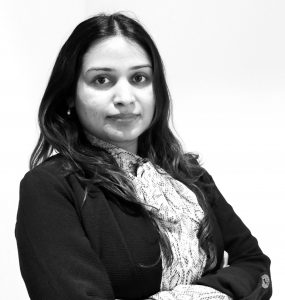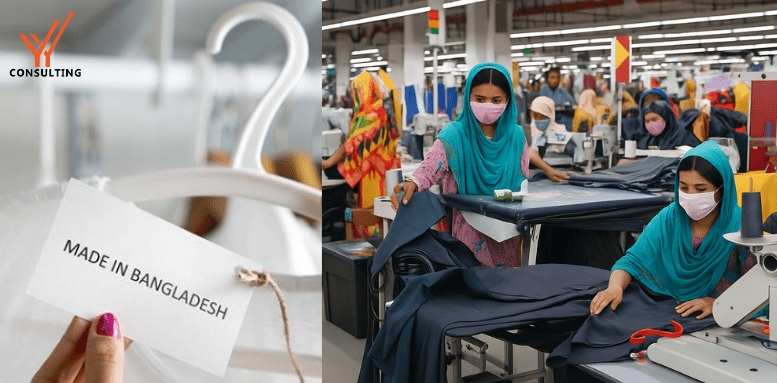For much of the past three decades, Bangladesh has been recognized as a global engine for large-scale garment production. Affordable basics, vast workforces, and impressive export volumes defined its reputation. But global fashion is evolving — and Bangladesh is evolving with it.
Today, a quiet but significant transformation is underway. Beyond the familiar stories of high-volume production, Bangladesh is fast becoming a reliable destination for premium garment sourcing, combining craftsmanship, speed, and ethical production at competitive price points.
Bangladesh’s emergence as a hub for premium brand sourcing isn’t merely a manufacturing trend — it reflects deeper shifts in global trade, consumer expectations, and responsible production. For brands, it represents an opportunity to access high-quality, ethically produced apparel with speed and flexibility. For Bangladesh, it marks a strategic leap toward greater value addition, economic resilience, and global influence.
Premium Brands Are Taking Notice — A Global Example
Consider the case of Lululemon, one of the world’s most recognisable premium activewear brands.
For years, Lululemon’s supply chain focused on regions like Vietnam, China, and North America — destinations associated with technical capability, high standards, and reliable performance wear production.
Bangladesh? It wasn’t part of the picture.
The country’s reputation for basics and bulk production seemed misaligned with Lululemon’s expectations for high-performance fabrics, precision cuts, and stringent quality requirements.
But global sourcing models evolved, and so did Bangladesh.
Facing rising consumer demand, greater scrutiny on ethical sourcing, and the need for diversified, resilient production networks, even established brands like Lululemon began exploring new sourcing landscapes.
Today, Bangladesh’s most advanced, LEED-certified factories have quietly integrated into Lululemon’s extended supply chain — reflecting not only the country’s transformation but also the brand’s recognition of the need for flexible, ethical, high-quality production.
Bangladesh’s association with basic T-shirts and high-volume production had long overshadowed its hidden strengths in technical garment production, small-batch capabilities, and premium manufacturing excellence.
At Groyyo Consulting, we work closely with manufacturing units in Bangladesh to implement advanced manufacturing techniques and global best practices, helping them evolve into future-ready sourcing destinations for premium, customised, and ethically produced garments.
The Global Sourcing Shift — And Why Bangladesh Fits
For decades, apparel sourcing followed a predictable pattern: brands pursued low-cost production, often prioritising margins over agility, sustainability, or transparency. But market realities have changed:
- Consumers now demand to know how, where, and under what conditions their clothes are made.
• Supply chains face unprecedented disruption, making speed and flexibility critical.
• Brands competing in the premium and mid-premium segments need differentiation — not just price advantage.
• Regulatory scrutiny on sustainability and ethical compliance is intensifying globally.
In this context, Bangladesh offers a unique proposition. The country combines an established manufacturing backbone with emerging strengths in premium production, customisation, and ethical leadership — a rare blend that global buyers increasingly find compelling.
As Faruque Hassan, Former President of the Bangladesh Garment Manufacturers and Exporters Association (BGMEA), recently stated:
“Bangladesh has already moved beyond the narrative of low-cost, high-volume production. Our factories today are not only among the most compliant globally but also capable of producing premium, high-value garments that meet the expectations of the most discerning international brands.”
Bangladesh’s Quiet Transformation: From Mass Market to Premium Production
Bangladesh’s evolution didn’t happen overnight. The country’s RMG sector has invested heavily over the past decade:
- Over 200 LEED-certified green factories, the highest concentration globally
- A skilled workforce exceeding 4 million, with increasing technical training initiatives
- Vertical integration enabling greater control over quality, lead times, and traceability
- Compliance with leading global standards — WRAP, SEDEX, GOTS, ISO, and beyond
- Growing expertise in complex categories such as activewear, technical fabrics, and customised casualwear
Factories in Dhaka, Gazipur, and Chattogram are quietly upgrading — introducing state-of-the-art equipment, implementing lean processes, and strengthening in-house capabilities to handle low minimum order quantities (MOQs) and bespoke requirements without sacrificing timelines or quality.
Shovon Islam, Managing Director of Sparrow Group, one of Bangladesh’s prominent apparel exporters, reflected on this trend:
“Global buyers no longer see Bangladesh just for volume. They’re looking at our capabilities in R&D, sustainability, design, and premium segments. We’ve invested in these areas because we know the future lies in offering value, not just price.”
Why Industry Leaders See Bangladesh as a Premium Sourcing Destination
Bangladesh’s premium sourcing capability is backed not just by infrastructure, but by leadership vision.
Rubana Huq, former BGMEA President and respected industry voice, captured this when she noted:
“Bangladesh has demonstrated that ethical manufacturing and premium production are not mutually exclusive. We’ve invested in being green, being fair, and being capable of producing garments that align with global expectations on both quality and responsibility.”
This strategic alignment is reinforced by the country’s:
- Low MOQs, enabling brands to launch capsule collections, pilot runs, and market tests without high-volume risks
- Customisation at scale, from proprietary colours and trims to brand-specific designs
- Rapid prototyping and agile production, critical for today’s fast-moving market cycles
- Ethical, compliant operations, often exceeding international benchmarks for safety, welfare, and sustainability
These strengths are positioning Bangladesh alongside — and in some cases ahead of — other popular sourcing destinations like Vietnam, Turkey, or Sri Lanka, particularly for buyers prioritising a mix of premium quality, ethics, and flexibility.
Sourcing Beyond Transactional Models — Why It Matters
In the modern apparel industry, sourcing can no longer be treated as a purely transactional process focused on price, volume, and delivery timelines. Leading global brands have realised that sourcing decisions are now strategic — they directly influence product quality, brand reputation, risk management, and long-term supply chain resilience.
When sourcing is treated as a short-term transaction, manufacturers often have little incentive to invest in innovation, quality improvements, or long-term alignment with the brand’s needs. In contrast, building long-term, partnership-driven sourcing relationships leads to shared responsibility, continuous improvement, and better product outcomes.
Product quality, especially in premium and mid-premium segments, depends on deep collaboration between brands and suppliers. Long-term partnerships enable suppliers to fully understand brand expectations, co-develop specialised products, and deliver consistency at every stage of production.
Moreover, today’s consumers demand more than a quality product — they expect brands to offer complete visibility into how and where their garments are made. Transactional sourcing limits transparency, while strategic partnerships create space for ethical alignment, verified sustainability practices, and greater accountability throughout the supply chain.
In a world of frequent disruptions — including geopolitical tensions, raw material shortages, and shipping delays — brands also require resilient, agile supply chains. This cannot be achieved through disconnected, price-focused transactions. It requires suppliers and brands working together, investing in flexible production setups, and developing contingency plans that protect delivery timelines and product availability.
Innovation is another key factor that drives brands to move beyond transactional sourcing. Competing in global markets requires constant product differentiation, faster prototyping, and access to technical advancements in fabrics, trims, and garment construction. These are only possible when suppliers are considered true partners in the product development process.
Finally, strategic sourcing delivers not only higher-quality outcomes but also better cost control in the long run. Brands that collaborate closely with their suppliers can reduce waste, improve production efficiency, and avoid hidden costs such as rework, shipment delays, or non-compliance penalties — all of which are common risks in purely transactional sourcing models.
Sourcing decisions today go far beyond price negotiations. They shape product excellence, brand credibility, supply chain resilience, and competitive advantage. Moving beyond transactional models enables brands to build partnerships that deliver value at every stage — from raw material to finished product — while upholding global standards for ethics, sustainability, and operational efficiency.
In the evolving global apparel landscape, treating sourcing as a strategic, long-term partnership is not just important — it is essential for responsible, resilient, and future-ready manufacturing.
Bangladesh’s New Role in Global Sourcing
In a volatile market, sourcing decisions carry more weight than ever. Brands need production partners that can deliver premium products, adapt to market demands, and uphold the highest ethical standards.
Bangladesh, once narrowly seen through the lens of high-volume, low-cost manufacturing, has expanded its capabilities — becoming a genuine option for brands seeking:
– High-quality, customized, ethically made garments
– Competitive lead times and flexible order quantities
– Transparent, responsible, and compliant supply chains
As global expectations rise, Bangladesh is proving that premium sourcing and ethical manufacturing can — and should — go hand in hand.
Premium garments. Tailored solutions. Fast, ethical, and reliable sourcing — all from Bangladesh.
At Groyyo Consulting, we believe this evolution represents one of the most significant shifts in global apparel sourcing. Through our deep engagements across Bangladesh’s manufacturing ecosystem, we have seen brands unlocking the country’s full potential — combining ethics, innovation, speed, and quality

Divya Mohan
General Manager (International Business)
divyamohan@groyyo.com


Leave a Comment